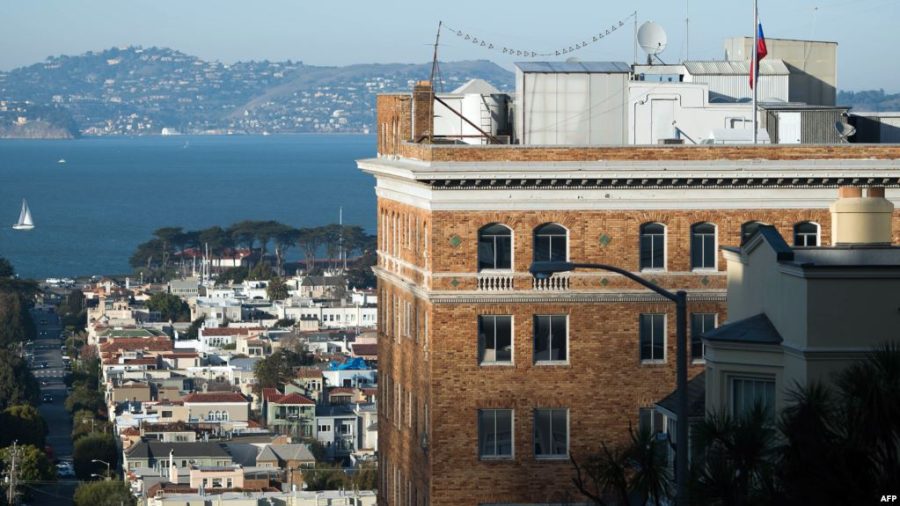While taking the laundry out of the washer, I discovered a washed passport among the clothes. “I washed my passport,” I thought to myself. “God! I will have to go to the nearest Russian consulate all the way in Seattle and wait there forever for a new passport to be issued. So much money! So much time! So much trouble!” With cold, sweaty hands I closed the passport. Thank God! It was blue, which meant it was American. My Russian passport is red.
Just last year, my problem could have been solved much more conveniently. The Russian consulate was in San Francisco, and I could get a new passport over the weekend. However, this summer, the U.S. State Department ordered the closing of three Russian consulates, including an office in San Francisco that served 1.7 million Californian Russians (most of whom live in and around San Francisco). This action was taken as a response to Putin’s demand to cut the U.S. mission in Russia by 1,755 employees and to surrender two properties.
Putin’s demand — and America’s retaliation — were purely symbolic as neither of the countries was harmed by them. The closure of a consulate does not harm a country’s strategic or even diplomatic positions since all major diplomatic missions are usually completed in the embassy rather than periphery mission posts. This only harms citizens of one country who want to travel or to live in the other such as Russian immigrants, international students like myself, professors, researchers, businesspeople, and tourists.
As a Russian national in the U.S., you need to go to an embassy or a consulate in many cases: if you need to renew your passport, permit your mom to sell your apartment, obtain a non-conviction certificate for a new job, or even to vote in the upcoming elections. Now, for all of those you would have to fly all the way to Seattle and wait there forever since, after the closure of those three consulates, all of the lines there are backed up.
Such a disadvantage for Russian Americans comes in handy for Putin: In Russian propaganda we are considered traitors, and the consequences of brain drain on scientists and promising students can hardly be positive. However, the question of why disadvantaging American Russians is good for the U.S. is debatable.
In this particular decision, we can see the manifestation of a common problem: When dealing with domestic policies, the U.S. politicians tend to do a strong social analysis of how specific groups will be affected by particular policies. The politicians do this because they are held accountable on domestic issues by their voting constituents.
However, since non-citizens cannot vote, U.S. authorities frequently neglect their needs. When analysing international problems, U.S. authorities tend to disregard social analysis in favor of state-based thinking. Even though state-based analysis has its own advantages, the full denigration of group-based thinking still harms the U.S. In this case, the U.S. will be hurt by a future drop in the rate of immigration of well-educated Russians who would otherwise be able to contribute to the U.S. scientific progress and economic development. All in all, such a state-level neglect of migrant and immigrant groups needs decreases in economic growth and impedes cultural and scientific progress of the U.S.








